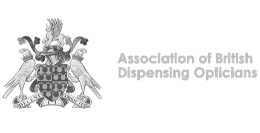After eight could be too late.
A child's vision is fully developed by the age of 8
Children are unaware as to what 'normal' vision is, which is why it is very important for them to take advantage of their eye examination which is funded by the NHS. If you're a parent, when was the last time your child's vision was assessed? Book online today.
Healthy eating is not only great for your body, but your eyes (and ears!) too. It's never too early to get your children used to eating well. Leafy greens, eggs, carrots and sweet potato are all great examples. If your child spends excessive amounts of time in front of a computer or on a tablet/smartphone, their eyes could suffer and become tired so it's often a good idea to limit use on these devices from a young age - myopia (short-sightedness) is becoming an increasing concern.
Your child may participate regularly in sports, or if they're older, they may be studying for their GCSE's or perhaps learning to drive. Whatever the scenario, think about whether their vision could be affecting their performance.

Can your child see to learn?
- A Child's Sight Test
- Retinal Imaging
- Dyslexia
- UV Damage
- What If My Child Needs Glasses?
- Myopia Control
What's involved?
With our modern computerised charts, we don't need to rely on letter recognition as we have a selection of picture charts which makes assessing a child's vision easier. We also have the reassurance of OCT scanning or digital retinal photography (available at all stores) or Optomap retinal scanning (only available at our Eastbourne store) to assess the health of the back of your child's eye (the retina). OCT and Optomap scanning are additional services not covered by the NHS and are subject to a small fee.
If you are concerned about how your child might find the sight test, you are welcome to bring them along to sit in on a test with yourself or a family member.
Why choose retinal photography or OCT imaging?
The benefit of digital imaging is that we are able to see more of the back of your eye and it gives us the reassurance that your eyes are healthy. If there are any changes, it is easier to pick these up at an early stage. The images are stored on the computer which make comparisons over a period of time much easier.
Is my child dyslexic?
Dyslexia is an umbrella term, covering a wide range of conditions and diagnosis is usually made by a child psychologist. However, if your child is struggling with reading there are tests that we can carry out to see whether coloured overlays would be useful. These assessments and extra tests are not covered by the NHS and are subject to a private fee.
Should my child wear sunglasses?
The eyes of a youngster are more vulnerable to damage from sunlight and ultra violet. This damage may not show up until later on in life, however it is still important to protect the eyes. This can be done by wearing a hat and sunglasses when playing outdoors.
We now stock Minishades™ - extremely durable sunglasses which block 100% UV and also come with polarised lenses to reduce glare. Minishades come with the incredible Hide n Seek Los Warranty meaning that if they do become damaged or even lost, you can order one replacement pair free of charge (there is a £4.99 charge to cover postage).
What happens if my child needs glasses?
We stock a wide range of children's frames in a variety of fun colours. Our qualified dispensing opticians will ensure the frames fit properly so that they suit all face shapes and sizes,
Following the eye examination, should your child need spectacles, they will be issued with a voucher. This can be used as part or complete payment towards a new pair of spectacles.
How can I protect my child's vision?
It goes without saying, there is nothing more important than the health and well-being of your children. As well as visual difficulties, myopia can cause health problems in later life. A person who is very short-sighted can be more susceptible to eye conditions such as glaucoma, retinal detachments and myopic maculopathy, which can all cause significant loss of vision. They can even lead to blindness.










